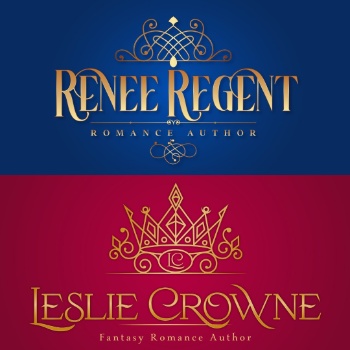Why I Choose to Write Romance
Monday, August 20, 2018 | By: Renee Regent
“So, you also write romance? Well, I guess you have to eat.”
Condescending much?
I regret that when another author made that comment to me, I let it slide. We met online and decided to swap newsletters, since our work had some themes in common. We exchanged several pleasant emails, did the newsletter swap, and then he disappeared. I don’t know why we stopped communicating, but his initial comment still bothered me several months later.
Here We Go Again
There have been countless articles and posts written about the unfair bias against the romance genre, so I won’t rehash any of those here. But yes, it ticked me off when another author implied that romance as a genre was inferior to other genres, and the only merit it had was producing content in order to make money.
In other words, no “serious” author would stoop to writing romance. This was from an indie author, too—someone who knows how much work it takes to bring a book to market and how scary it is to put yourself out there without the backing of a publisher. He wrote the book that was in his heart, and it was well done, and well received. But you know what?
So did I.
It Goes Both Ways
My first book, Unexplained, (Book 1 of the Higher Elevation Series), was written with a central love story in mind. The heroine is a skeptical journalism student, and the hero is a psychic with the ability to project his mind outside of his body. They become tangled up in danger while trying to understand the meaning of their strange mental connection. The book ended up being a suspenseful Cold War spy story, with a twist. I never meant to straddle the mainstream and romance genres, but that’s how the story turned out. Readers who normally don’t read romance enjoyed it, and those who love romance enjoyed it, as well.
Because Unexplained attracted some non-romance readers, I was able to get some feedback from them, and I noticed something—there was often a “disclaimer” that they don’t normally read romance, but made an exception for this book. Why is that even necessary? The romance readers didn’t make any comments about having to read the non-romantic parts of the book. Will the stigma of romance being part of a story, or the entire story, ever go away? Gore and violence are often accepted, but not falling in love.
It doesn’t make much sense.
Romance Is Strong
However, the bias against romance won’t slow it down, because readers will continue to read voraciously, and authors will continue to write romance stories, myself included. My next novel, Not So Broken, is a steamy Contemporary romance, the first in a series. I chose to write this story because I love to hear how couples got together.
Isn’t that a universal question we often ask others—“How did you two meet?”
Don’t we all love to hear how a couple met, especially when there seems to be an element of fate? It’s fascinating to think that being in the right place at the right time led to a relationship. What if he had missed that train, or if she had decided to stay home instead of going out to that club? How can a chance meeting turn into something life changing?
I like to get inside the heads of my characters and figure out how to get two mismatched souls to come together despite the odds. The HEA, or happily ever after, is the destination and the story is all about the couple’s journey to get there.
Every group of people on the planet has those kind of stories—about two people falling in love. Love is love, and romance is universal, even for those who look down their noses at those of us who write about it.
That is why I choose to write romance. I’m damn proud of the title, “Romance Author”, and many of us are eating very well, thank you.


0 Comments